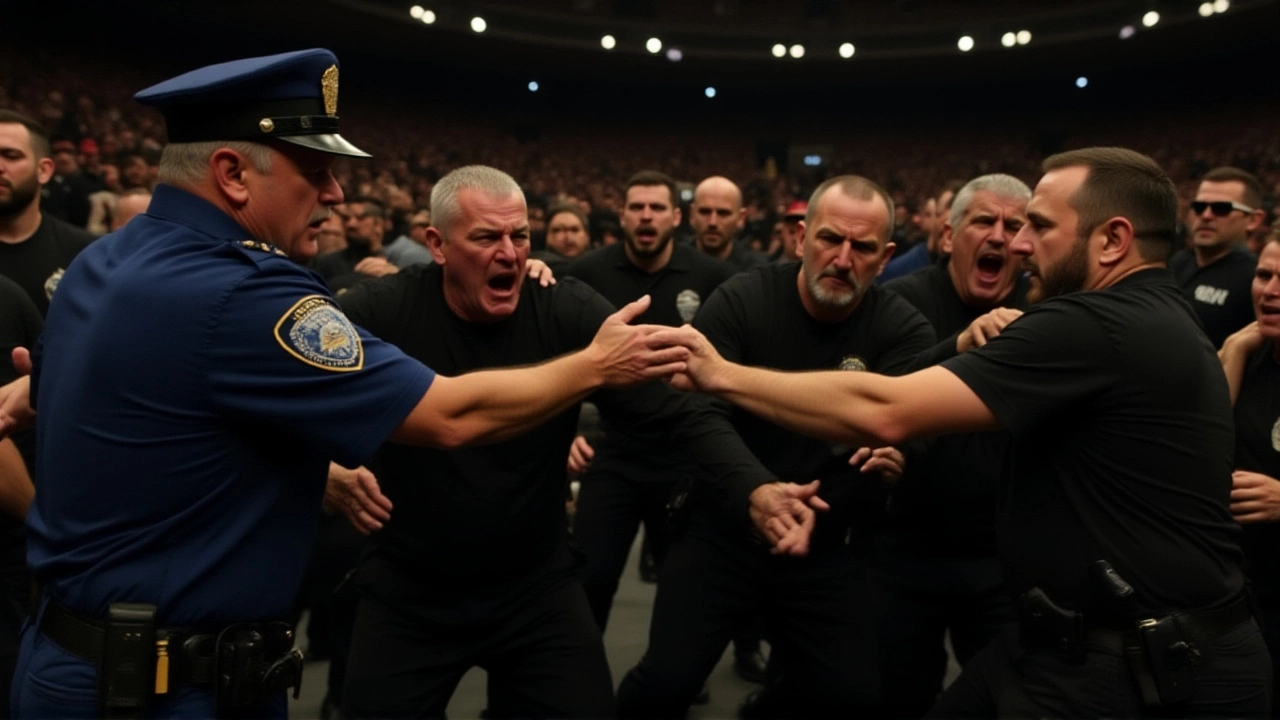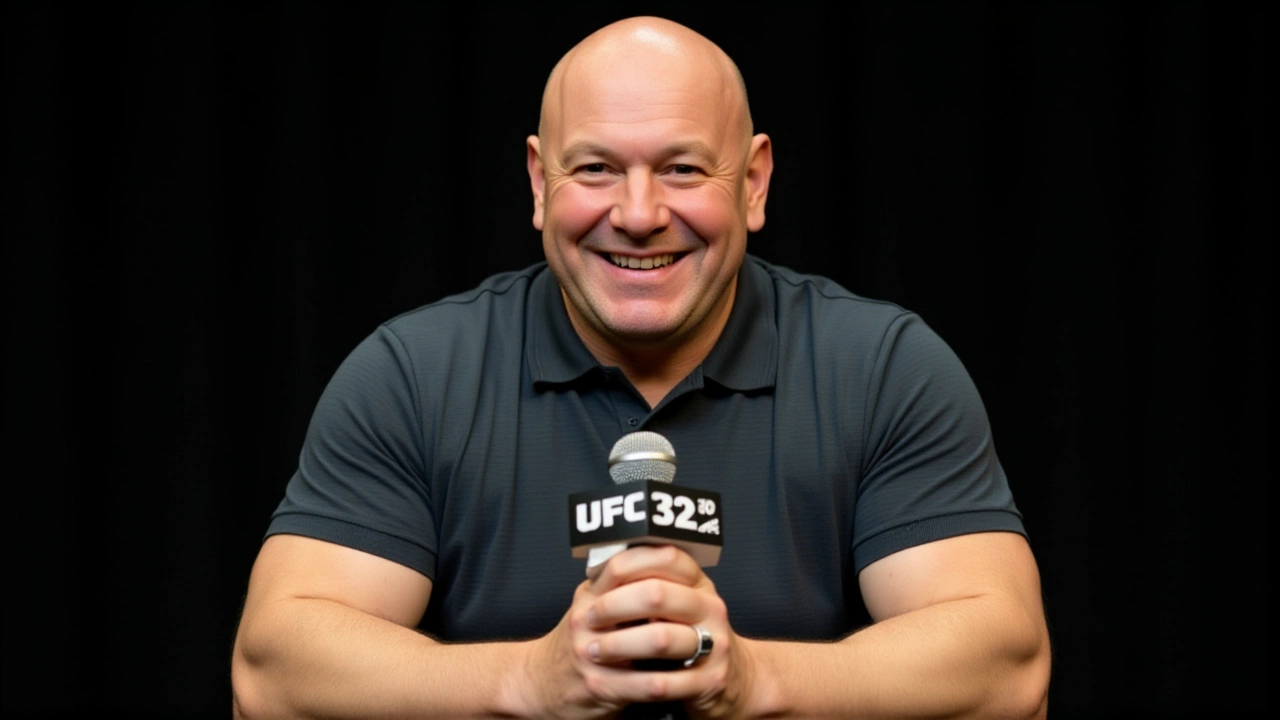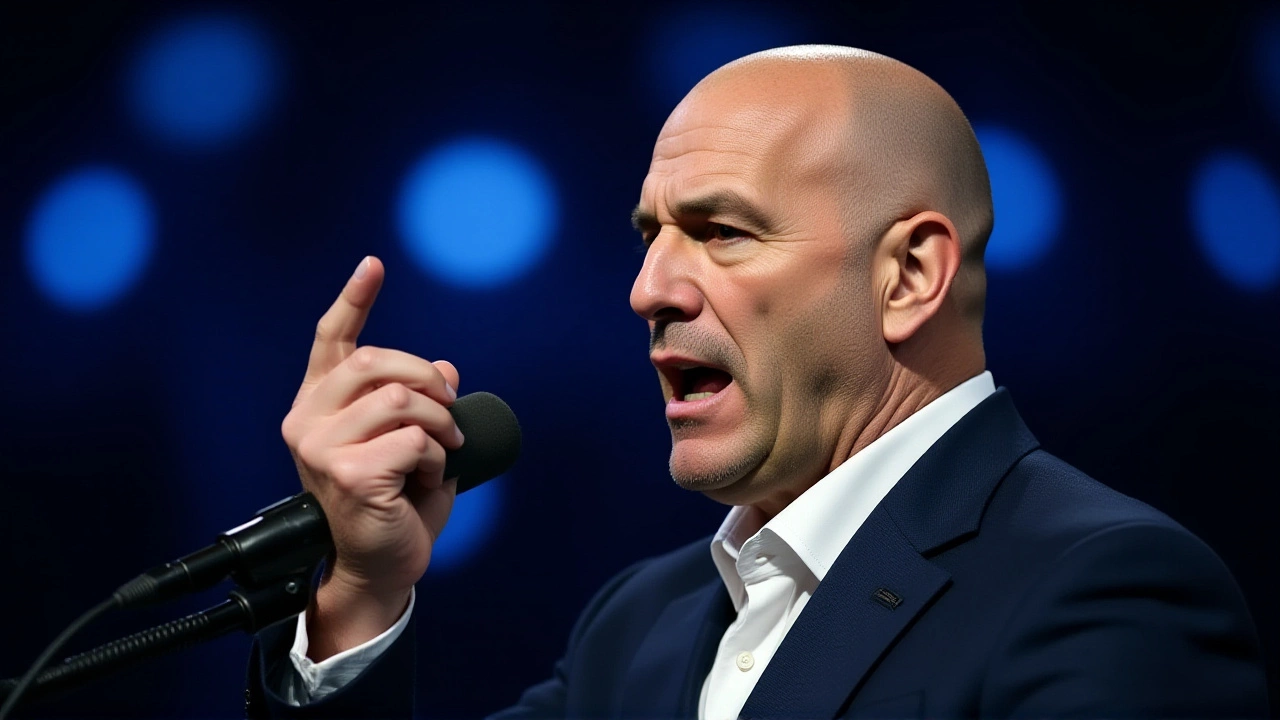When Dana White looked out over the crowd after UFC 322 ended on November 16, 2025, he didn’t see a victorious night. He saw a mess he could’ve stopped — and didn’t. The UFC president issued a lifetime ban to Dillon Danis, the 31-year-old Canadian BJJ provocateur, after a ringside brawl erupted between Danis and members of the Nurmagomedov team during the main event. It wasn’t just a fight. It was the culmination of years of tension, poor judgment, and a system that lets tempers boil over — until it doesn’t anymore.
What Happened at UFC 322?
The incident began not in the octagon, but in the seats. Danis, who held a valid ticket to UFC 322, reportedly moved from his assigned section into fighter-designated seating areas roughly 30 minutes before the main card started. Security noticed. They alerted White. According to White’s own words during the post-fight press conference: "They came back and told me right before I walked out... that Dillon Danis was here and he was moving around sitting in fighter seats." The staff asked: "Do you want us to throw him out?" White said no. "He has a ticket." That decision, as White later admitted, was his mistake. "I could have prevented this tonight," he said, voice heavy with regret. By the time the final bell rang, Danis had crossed paths with multiple members of the Nurmagomedov camp — likely including associates of Khabib Nurmagomedov and Islam Makhachev — and a physical altercation broke out. Bloody Elbow confirmed the brawl involved "members of the Nurmagomedov team," though no names were officially released. Witnesses described chaos: shoving, yelling, security rushing in. The main event’s post-fight celebration was drowned out by the noise of fists and shouted threats.Why This Isn’t Just Another Fight Night Scandal
This wasn’t random. Danis and the Nurmagomedov camp have been locked in a bitter, public feud since 2018. Danis, once a respected BJJ competitor, became infamous for his confrontational behavior — especially toward Khabib, whom he mocked relentlessly on social media. Khabib retired in 2020, but the animosity didn’t. It festered. Umar Nurmagomedov, Islam Makhachev, and their inner circle have all been targets of Danis’s provocations. When Danis showed up at UFC 322, he didn’t just walk in — he walked into a powder keg. White’s admission that he knew Danis was "making too much trouble" — and still let him stay — speaks to a deeper problem in MMA culture: the tolerance of chaos for the sake of drama. Fans love it. Promoters profit from it. But when security warns you twice, and you shrug it off? That’s not leadership. That’s negligence.
The Lifetime Ban: A Pattern, Not a Surprise
White’s ban isn’t new. Bloody Elbow noted he’s handed out eight lifetime bans before — to fighters like Conor McGregor (for the 2018 bus attack), T.J. Grant, and others for violent or disruptive conduct. But those bans were usually for fighters who attacked others inside or outside the cage. Danis wasn’t a fighter on the card. He was a spectator. And yet, White treated him like one. "You’ll never see him at another fight," White declared. No appeal. No second chance. The message was clear: even if you’re not in the octagon, you’re still under UFC rules. What’s striking is that White refused to press charges. "It’s the fight business, man," he said. That line — casual, almost resigned — reveals the industry’s twisted logic. Violence is part of the product. But only if it’s choreographed. When it spills into the crowd? It’s a PR nightmare. And White knew it.Who’s Really Affected?
The fallout extends beyond Danis. The Nurmagomedov team, which includes coaches, managers, and fighters who train under the same system, now faces scrutiny. Are they complicit? Did they provoke the brawl? Or were they simply defending their camp from a known instigator? No one’s been named. No one’s been punished. That silence speaks volumes. Fans are divided. Some applaud White’s decisive action. Others say the ban is hypocritical — why punish Danis but not the fighters who’ve thrown chairs, attacked media, or assaulted fans? The double standard is real. And it’s not lost on anyone. The UFC’s decision not to press charges also raises questions. If a civilian gets into a fight at a stadium, they’re arrested. But in the fight business? It’s "just the way it is." That’s not culture. It’s cowardice.
What’s Next?
Danis won’t be at UFC 323. Or 324. Or ever again. But he’ll still be on social media. He’ll still talk. He’ll still stir the pot. And the Nurmagomedov camp? They’ll keep winning. They’ll keep dominating. And White? He’ll keep saying he’s sorry — but he won’t change the system that lets this happen. The real question isn’t whether Danis deserved the ban. It’s whether the UFC can ever truly police its own culture. Because as long as chaos sells tickets, someone will always be willing to light the match.Frequently Asked Questions
Why didn’t the UFC press criminal charges against Dillon Danis or others involved?
Dana White explicitly stated the UFC declined to press charges, calling it "the fight business." While the altercation involved physical violence and potential assault, the organization chose to handle it internally to avoid legal scrutiny and negative publicity. This aligns with past UFC practices, where incidents like Conor McGregor’s 2018 bus attack were also settled without criminal prosecution — despite video evidence and public outcry.
Has Dana White ever banned someone from attending events, not just fighting?
Yes. While lifetime bans are typically reserved for fighters, White has previously banned promoters, journalists, and even fans from UFC venues. In 2021, he banned a fan who threw a water bottle at a fighter. This is the first known lifetime ban for a non-fighter who held a valid ticket, making Danis’s case historically significant in terms of enforcement scope.
How does this affect future UFC events and fan behavior?
UFC security is now under heightened scrutiny. Fans with a history of altercations or social media provocations may face stricter vetting before ticket approval. Seating protocols are expected to tighten, with designated areas for fighters and their camps now enforced more aggressively. The message is clear: even fans with tickets aren’t immune to consequences.
What’s the connection between Dillon Danis and the Nurmagomedov team?
Danis has publicly mocked Khabib Nurmagomedov since 2018, claiming he couldn’t beat him in a grappling match. He later targeted Islam Makhachev and Umar Nurmagomedov, posting provocative videos and comments. The feud intensified after Khabib’s retirement, with Danis positioning himself as the "true" grappling king. The Nurmagomedov camp, known for its disciplined, family-oriented structure, viewed Danis as a destabilizing force — making the UFC 322 brawl almost inevitable.
Is there a chance Danis could get the ban lifted?
Unlikely. White has never reversed a lifetime ban, even for fighters who apologized publicly. The ban includes all UFC-owned events, merchandise sales, and digital platforms. Danis’s social media activity has not shown remorse — in fact, he posted a cryptic message the day after: "They don’t like the truth. So they ban it." That’s not the tone of someone seeking redemption.
How does this compare to other major UFC controversies?
The 2018 bus attack involving Conor McGregor and Khabib Nurmagomedov led to fines and suspensions, but no lifetime bans. Danis’s case is different: no fighter status, no official role, yet the same punishment. It signals a shift — the UFC is now willing to punish outsiders who disrupt its brand, even if they’re not part of the roster. This could set a precedent for how the organization handles non-fighter provocateurs in the future.
